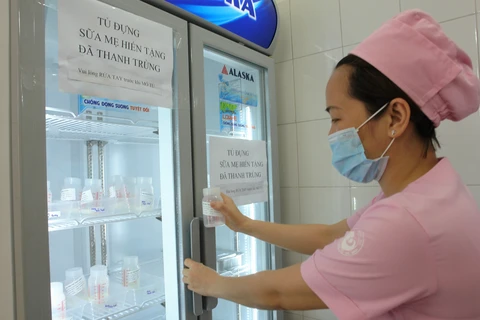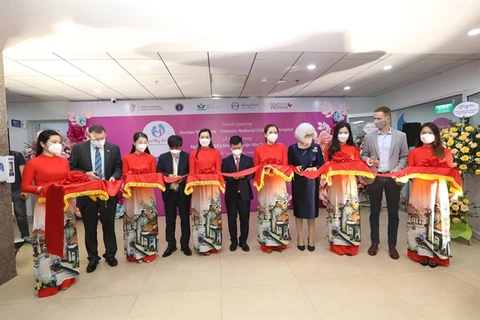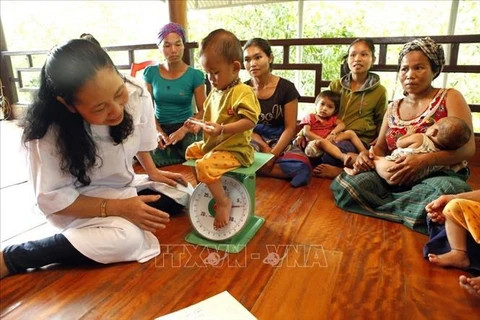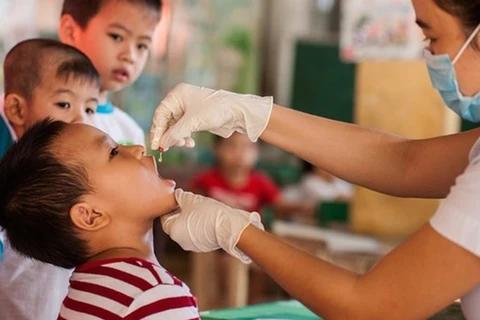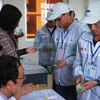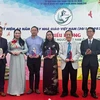Hanoi (VNA) - On January 13th, the National Institute of Nutrition of Vietnam hosted a delegation from 15 countries to exchange knowledge on successful nutrition policies and models, with a commitment to narrowing gender gaps in nutrition sector.
During the working session, Paul Zambrano, Regional Director of Alive & Thrive in East Asia and the Pacific, emphasized that gender disparities in nutrition can be seen as both complex and simple concepts.
In a typical family setting, the mother often spares better food and bigger portions to other family members. Therefore, when family incomes decline and food scarcity occurs, women and young girls suffer.
At the session, FHI 360 initiated the development of a global action framework to narrow the gender gap in nutrition for women and young girls, with over 40 organizations signing up to participate.
Participants at the event mention the 2023 report from the United Nations Children's Fund (UNICEF). Accordingly, it reveals that due to the impact of diseases and conflicts, over a billion women and young girls worldwide are facing malnutrition and serious consequences.
Do Hong Phuong, Nutrition Policy Specialist at UNICEF Vietnam, stated that pregnant and lactating women who lack access to adequate nutrition and healthcare services will suffer consequences not only for one generation but across generations and in the long term.
Associate Professor Tran Thanh Duong, Director of the National Institute of Nutrition, noted that January 2024 marks the tenth anniversary of Vietnam joining the global nutrition movement launched by the United Nations. Over the past decade, nutrition issues have received great attention, guidance, and investment from the Vietnamese government. Despite achievements in reducing the rate of malnutrition to under 20% and doubling the rate of exclusive breastfeeding from 19% to 45%, significant nutritional disparities persist in ethnic minority communities, especially among women and young girls. The government is actively addressing these challenges by ensuring nutritional content in all three national target programs.
According to the National Target Program for Socio-Economic Development in Ethnic Minority and Mountainous Areas for the 2021-2030 period, Vietnam strives to achieve its goals by 2025. Specifically, over 80% of ethnic minority women should receive regular prenatal check-ups and give birth at healthcare facilities or with the assistance of healthcare professionals. Additionally, 100% of malnourished children in ethnic minority and mountainous regions are to be supported in enhancing their nutrition.
Doseba Sinay, Country Director of World Vision International in Vietnam, shared that the member organizations of the nutrition working group in Vietnam, operating in more than 40 provinces and cities, are actively collaborating with the Ministry of Health and provinces to establish and maintain effective models. These include Nutrition Clubs, Sun Child Nutrition Counseling Rooms, Excellent Hospitals in Breastfeeding Practice, and Breast Milk Banks, ensuring equitable and quality access to nutrition for mothers and young girls, especially in ethnic areas.
"We are impressed by Vietnam's progressive policies to promote gender equality in nutrition, such as extending maternity leave from 4 to 6 months, as well as its recent initiative to expand maternity benefits to female workers in the informal sector," said Ms. Nazgol Kafai-Golahmady, Senior Advisor to the Secretary-General of the Civil Society Network for Scaling Up Nutrition. Therefore, Vietnam's prohibition of advertising breast milk substitutes is an important measure to ensure optimal early nutrition for both infants and mothers.
The Scaling Up Nutrition (SUN) movement, initiated by UNICEF and led by various United Nations organizations since 2010, brings together countries and thousands of stakeholders committed to ending malnutrition by 2030. To date, 66 countries worldwide, particularly those with high rates of malnutrition in Asia, Africa, and Latin America, have joined the movement. Vietnam became a member of the movement in January 2014./.



